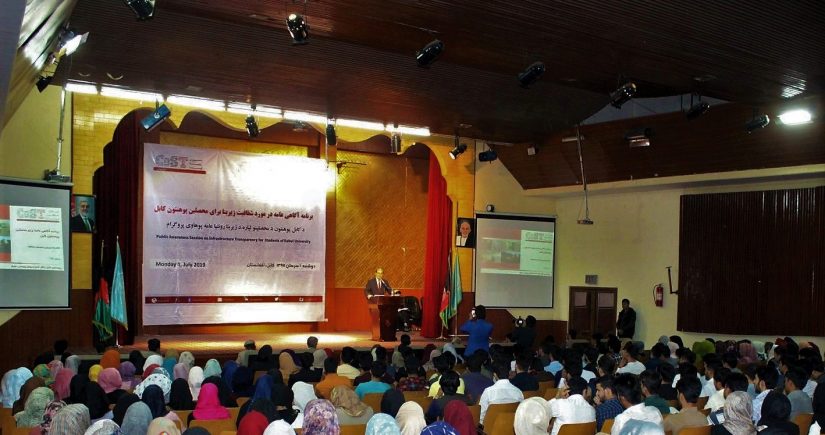CoST Afghanistan has come a long way since the programme was launched in 2016. At the time, infrastructure governance was characterised by high levels of financial waste and opaque management systems. One of the challenges faced by CoST Afghanistan was how to change the mindset of procuring entities, for whom project information – especially at the procurement stage – was traditionally kept away from the public eye. Equally, high levels of illiteracy in Afghanistan’s largely rural population meant that public appetite for such information was relatively low. However, in recent years there has been a marked increase in both the levels of data disclosed, and the public’s engagement in infrastructure.
Currently, information on over 4300 infrastructure projects is disclosed on government e-portals. These include e-portals from the National Procurement Authority, the Ministry of Transport, the Ministry of Rural Rehabilitation and Development and the Ministry of Energy and Water. This signifies a marked change in attitude at a governmental level, and one which is further enhanced by the popularity of CoST Afghanistan’s training and events for government entities. The high-level attendance of these events shows an acceptance of the need for a transparent approach to infrastructure governance, and recognition of the benefits that this ultimately brings to both the well-being of Afghanistan’s citizens and its economy.
Meanwhile, CoST Afghanistan’s public awareness sessions have triggered an engagement around public infrastructure which will help ensure the demand for disclosure is maintained. Most recently, CoST Afghanistan held a public awareness session at Kabul University which was attended by over 330 students from different courses across the university. The students came to learn about e-portals, the type of information published on them and the way they can use this information to monitor infrastructure projects.
While the story of infrastructure transparency in Afghanistan may be far from over, opportunities for corruption will become smaller as awareness grows, and public expectations of quality and efficiency will increase. CoST Afghanistan will continue to engage the public, train the government and work with the private sector to ensure the country remains on this path.
